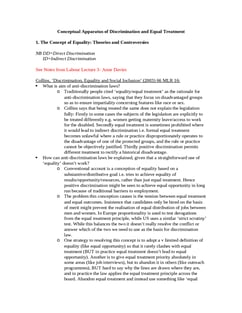Addis v Gramophone Co [1909] AC 488
Judgement for the case Addis v Gramophone Co
Table Of Contents
KEY POINTS
Master and Servant defines the legal relationship between an employer (master) and an employee (servant), governed by contractual agreements outlining rights and responsibilities. A failure to meet these terms results in a Breach of Contract, where either party neglects obligations, violating agreed-upon terms.
In employment law, Tort encompasses wrongful acts causing harm or loss, such as workplace negligence or defamation. Wrongful Dismissal addresses unfair termination, often violating employment contract terms or laws protecting employees from arbitrary dismissals.
In breach, torts, or wrongful dismissal cases, seeking Damages is common. Damages represent compensation pursued by the affected party (employer or employee) to address losses due to legal transgressions, aiming to restore them to a position as if the breach or wrongful act had not occurred.
FACTS
Mr. Addis (‘Appellant’) was employed by the Gramophone Company (‘Respondent’) in Calcutta under a contract. The contract stipulated that either party could terminate the agreement by giving six months' notice. The Gramophone Company, however, terminated Mr. Addis' employment without notice.
Mr. Addis brought an action against the Gramophone Company for wrongful dismissal, claiming damages for the loss of salary and commissions he would have earned during the notice period. He argued that how his dismissal occurred was harsh and oppressive, causing damage to his reputation in the commercial community of Calcutta.
The central issue in the case was whether damages could be awarded for the financial loss resulting from the breach of contract and how the dismissal took place, including any injury to the plaintiff's reputation.
The Court of Appeal had initially ruled in favor of Mr. Addis, holding that damages could be awarded for the manner of dismissal. However, the House of Lords overturned this decision, stating that damages for the manner of dismissal were not recoverable in addition to damages for the breach of contract unless there was an independent cause of action recognized by law, such as defamation.
The judgment clarified that damages for wrongful dismissal should be limited to the financial loss directly resulting from the breach of contract, and other elements, such as injury to reputation or emotional distress, should be addressed through separate legal actions if applicable.
JUDGEMENT
The House of Lords reversed the decision of the Court of Appeal. The House of Lords held that damages for the manner of dismissal (in this case, the alleged injury to the Plaintiff's reputation) were not recoverable in addition to damages for the breach of contract unless there was an independent cause of action recognized by law, such as defamation.
The judgment clarified that damages for wrongful dismissal should be limited to the financial loss directly resulting from the breach of contract, and other elements, such as injury to reputation or emotional distress, should be addressed through separate legal actions if applicable.
As a result, the House of Lords ordered a reversal of the Court of Appeal's decision and entered judgment for the Appellant (Gramophone Company Ltd.), with a declaration that damages for the manner of dismissal were not recoverable in this context. The Appellant was entitled to be credited in the account with salary and commissions as specified in the contract.
COMMENTARY
The House of Lords clarified that damages for wrongful dismissal should be limited to direct financial losses from the breach of contract.
The judgment highlighted that claims for damages related to the manner of dismissal, such as injury to reputation, require an independent cause of action like defamation.
This decision aimed to prevent the inflation of damages by restricting claims to those directly linked to the breach of contract, underscoring the need for clear legal grounds in seeking compensation for wrongful dismissal.
ORIGINAL ANALYSIS
-
An employee who was paid a small salary and a larger commission was wrongfully dismissed.
(He should have been entitled to 6 months' notice, and was actually given 6 months' notice, but was prevented from working it out because his successor was appointed to take over immediately).
The issue was as to quantum of damages.
HL held that he was entitled to his salary and reasonable commission (the latter based on what his successor had actually earned) for the 6 month notice period.
-
He was not entitled to:
Damages for the humiliating manner of his dismissal, or
Any loss of reputation leading to future difficulty in employment.
RELATED CASES
For Further Study on Addis v Gramophone Co
Need instant answers? Our AI exam tutor is here to help.
Ask questions 🙋 Get answers 📔 It's simple 👁️👄👁️
Our AI is educated by the highest scoring students across all subjects and schools. Join hundreds of your peers today.
Get StartedSimilar Cases
Related Product Samples
These product samples contain the same concepts we cover in this case.
| Labour Law | Wrongful Dismissal Notes (39 pages) |
| Labour Law | Wrongful Dismissal Notes (26 pages) |


 Since 2010, Oxbridge Notes has been a trusted education marketplace, supplying high-quality materials from top achievers at universities like Oxford, Cambridge, LSE, Harvard, and Yale.
Since 2010, Oxbridge Notes has been a trusted education marketplace, supplying high-quality materials from top achievers at universities like Oxford, Cambridge, LSE, Harvard, and Yale.